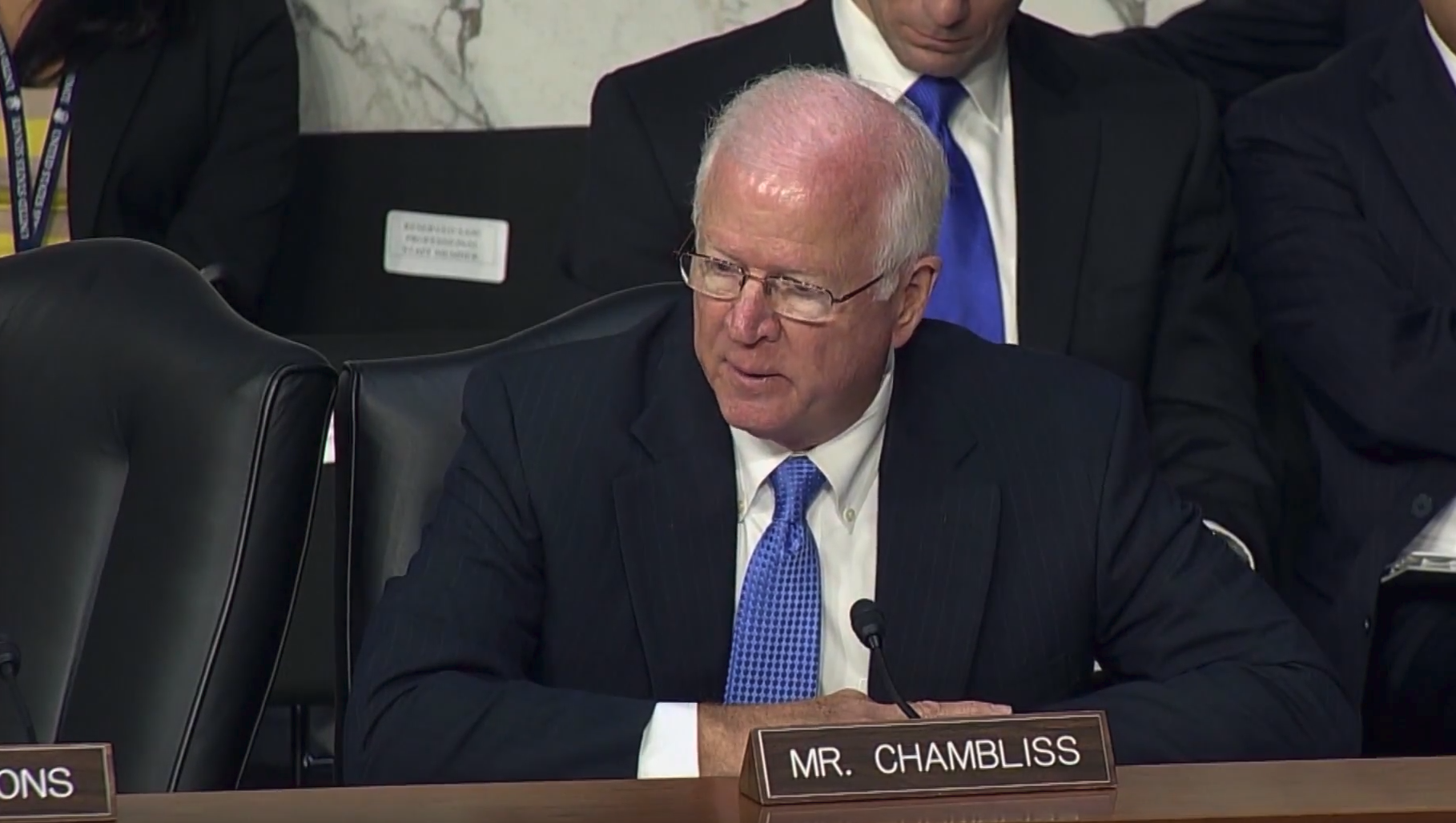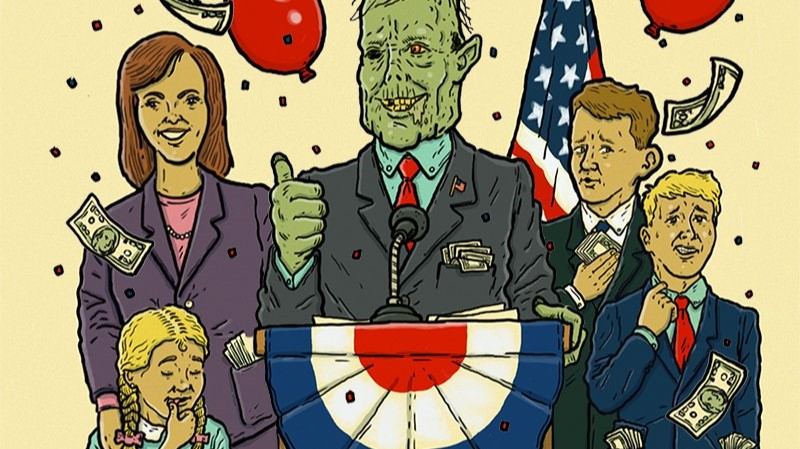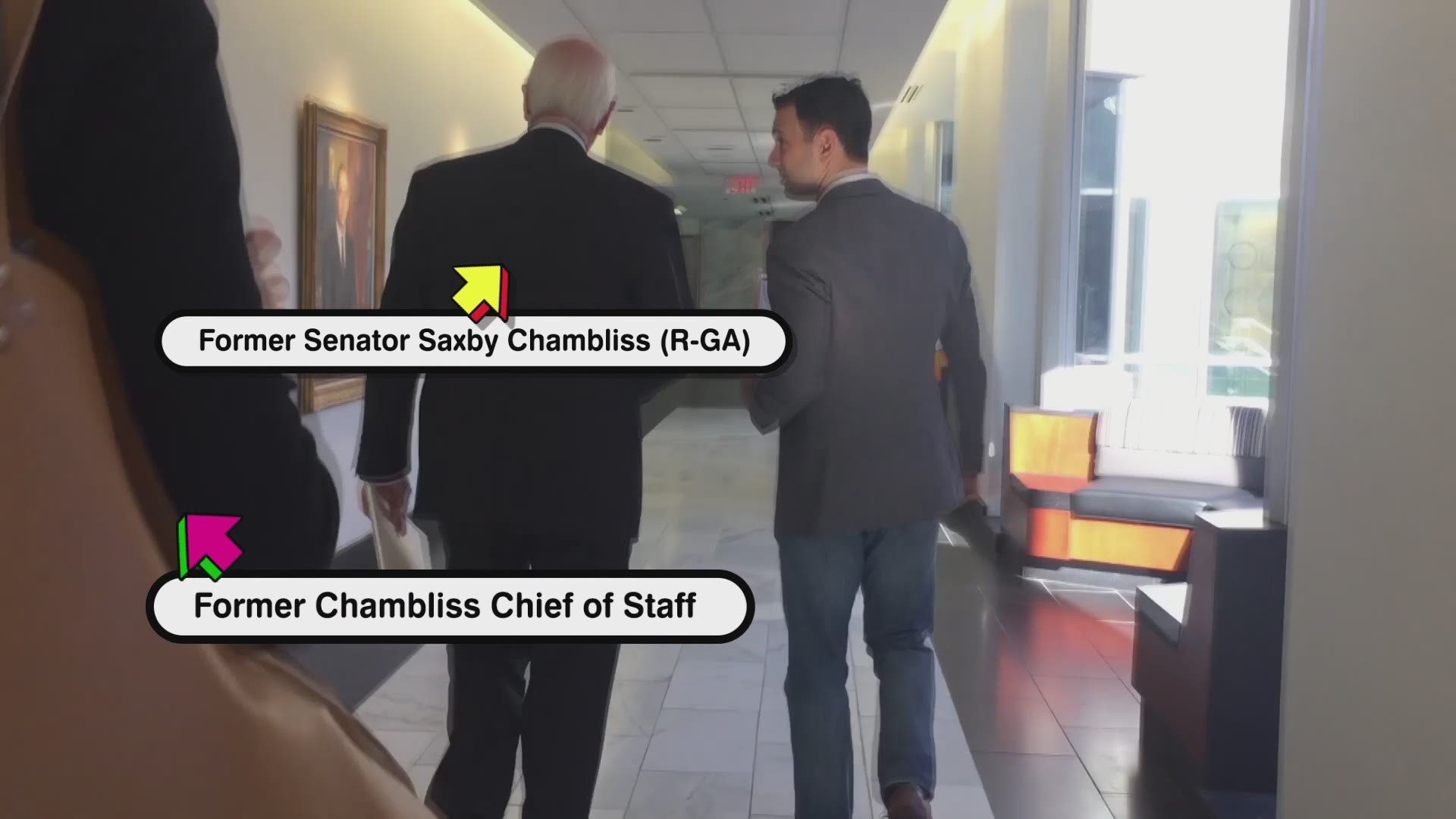ATHENS, Ga. — Luxury hotels, vacations, iPads and even cell phone bills.
Those are just some of the personal purchases former lawmakers in Georgia, and across the country, are accused of paying for with campaign contributions... while they're not even running for office.
11Alive Investigator Andy Pierrotti teamed up with the Tampa Bay Times and TEGNA-owned stations across the country to uncover how old "Zombie Campaigns" can stay alive and lucrative, long after those politicians who run them leave politics.
ZOMBIE CAMPAIGNS | Read the full investigation
Take former Senator and Georgia Representative Saxby Chambliss, who indulged in stays at the Williamsburg Inn in Virginia.
Everything about the hotel oozes luxury. The hotel's restaurant is called "The Rockefeller Room." There's complimentary champagne at check-in. And then, there's the fancy spa. A five-night stay at the five-star hotel runs nearly $2,000 – a splurge for most, but not if you're a former U.S. senator like Chambliss, who was able to write it off as simply another expense from his campaign war chest in 2016.
The only catch? Chambliss retired from the Senate in 2015 and wasn't running for office that year.

11Alive and their news partners at the Tampa Bay Times and TEGNA affiliates uncovered Chambliss used donations from a campaign account many might think would be closed, but are still very much alive.
After repeated requests for an interview were denied, one of our investigative colleagues caught up with him a few months ago in Athens, Georgia to ask questions (he avoided them).
"You retired from the Senate three years ago," asked WTSP reporter Noah Pransky. "Why do you still have a campaign account open?”
“Because there’s money in it," Chambliss evaded.
At last check, Chambliss still had $252,000 in his campaign account, using it as a personal slush fund to pay for $730 in food at one D.C. restaurant in 2016.
The 11Alive Investigators also found a $151 transaction at a jewelry store and $250 charge at a florist – all paid with campaign cash after Chambliss left office.
"There's just no legitimate explanation for that, and it's just outrageous," said Noah Bookbinder with Citizens for Responsibility and Ethics in Washington.
Bookbinder is the executive director of Citizens for Responsibility and Ethics in Washington, or CREW, a nonprofit watchdog group.
“When people give money to a campaign, they are supporting a candidate," Bookbinder explained. "They want to get that candidate get elected, but they’re not the money to that person to see as they see fit for the rest of their lives.”
Federal Election Commission law agrees. It states candidates should never*personally benefit from campaign contributions. They’re supposed to donate it to charity or established political campaigns. The problem is, former candidates are not required to retire their campaigns. So, politicians can keep their lucrative accounts open…indefinitely.

In all, 11Alive's team identified a hundred former lawmakers and presidential candidates still spending campaign cash long after giving up the game.
Take former Florida Congressman Mark Foley. He resigned in 2006 after he was caught sexting high schoolers. But, our investigation found the Republican has spent the last decade using leftover campaign cash on memberships to posh social clubs, travel, meals, and a personal computer.
And then there’s South Carolina Democrat, Robin Tallon, who hasn’t served in Congress in 25 years.
Yet, we found him living off his old campaign cash: paying for travel, a new iPad and dues to his country club – all in violation of FEC rules.
We even found a lawmaker who died whose campaign cash used to fund a former staffer’s salary.
So, how can be this be stopped? Two lawmakers – a Republican and a Democrat – authored legislation that would mandate former lawmakers close their accounts shortly after leaving office. But if those bill don't sound familiar, don’t be too surprised. Congress never gave the bills a single hearing.
“If the Federal Election Commission is not going to act on this, then maybe the only way to get to action is to shame people and shinning a light into what’s happening can do that," Bookbinder said.


